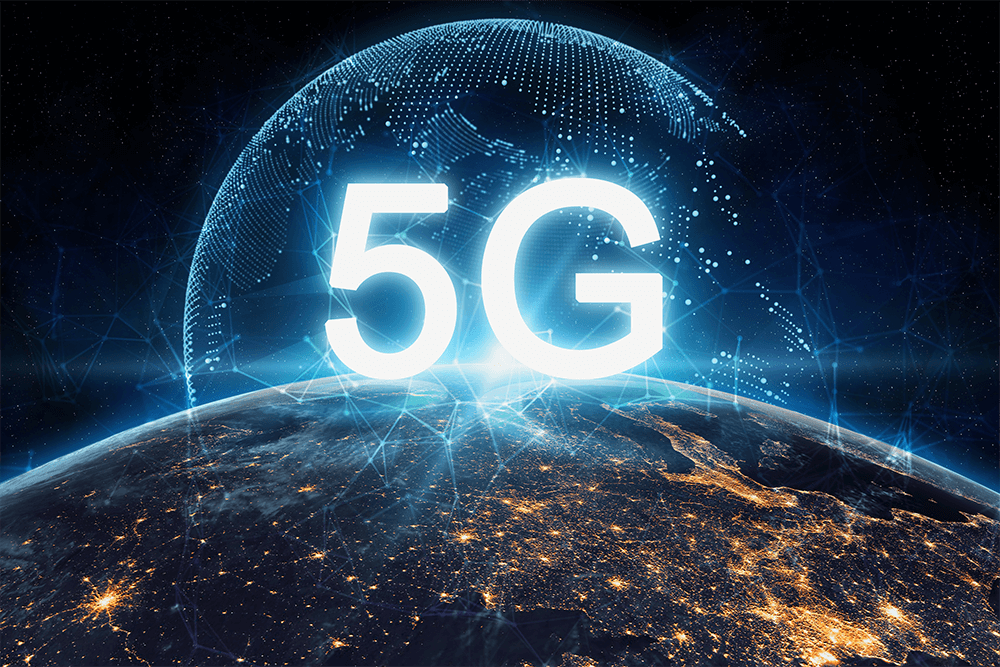What Is 5G Technology And How Must Businesses Prepare For It?
2 July 2021
In some circles, there’s been much talk about 5G technology and its imminent arrival. However, most individuals and companies haven’t experienced it, although there’s a lot of work being done behind the scenes to build, trail, and launch the infrastructure. When 5G does become widely available, we can expect immense opportunities for the technology just like we have with the launch of every generation of mobile networks. Here’s what 5G technology is and how businesses should prepare for it.

What is 5G?
Called 5G, the fifth generation of mobile wireless communications promises to lower latency, offer greater stability, the ability to connect many more devices at once, and move more data thanks to faster speeds. These features have the potential to supercharge business, and that’s one of the reasons 66 percent of businesses plan to deploy 5G by 2020, according to a study by Gartner. Ultimately, 5G takes advantage of higher-frequency bands in the radio spectrum that have a lot of capacity but shorter wavelengths. Cisco estimates that by 2020, 5G will generate three times more traffic than the average 4G connexion, and those connexions will make up 3 percent of total mobile connexions.
Many industry experts believe that 5G networks alongside existing 4G LTE networks will be 10 to 20 times faster than 4G when fully deployed in the real world. Standalone 5G could reach gigabit-plus browsing speeds, making mobile internet as fast, if not faster, than hardwired fibre connexions.
Benefits of 5G
The first improvement most are excited about is the improved speed. Whereas 4G has download speeds typically 20Mbps, 5G is expected to reach 500 to 1500 Mbps—pretty much instant. Consumers might be impressed by being able to download a movie from Netflix in seconds, but there are some very important business applications this speed will make possible.
The world is already mobile. We will have 30 billion connected devices by 2020, and with use cases for internet of things technology expected to keep growing, our already congested spectrum bands are only going to get worse. This leads to breakdowns in service that could be catastrophic when autonomous vehicles are on the road or in some healthcare scenarios. Tapping into 5G technology allows more capacity for multiple devices to be used at once in the same area (a 5G cell tower could handle a hundred more unique devices than a 4G one).
5G towers are significantly smaller (the size of a minifridge) and, therefore, can be put in a variety of locations that would never have worked in the past. In urban areas, that might mean 5G towers will be on every lamppost. Ultimately improvement to coverage will depend on carriers expanding cell towers.
All four major U.S. Carriers have rollouts of limited 5G wireless in use today, and most countries likely won’t have launched 5G services before 2020. There is quite a bit of action behind the scenes from regulators, wireless carriers, and phone makers to get everything in place to make a 5G full-scale launch possible. To see the progress, cheque out the Race to 5G page.
How will 5G be used?
First, you will eventually need a 5G compatible phone; however, these phones should be able to switch between 4G and 5G to find the most stable service. Importantly, there will be more than faster Netflix downloads and 5G-compatible phones, businesses will also benefit.
Not only will 5G be instrumental for many industries, including retail, entertainment, automotive, manufacturing, and logistics, but it will also help speed up tech advancements. These advancements will enable connected cars and autonomous driving; smart cities with connected logistics, transport, and infrastructure; enhancement in connected healthcare from robotics to blockchain use cases to wearable telemetry; industrial internet of things and smart factories; and the more extended use of augmented reality, virtual reality and mixed reality.
5G will supercharge businesses
5G technology could help businesses increase efficiency, production, and innovative breakthroughs as well as reduce costs. Unfortunately, Barclays’ polling found that only 28 percent of businesses understand 5G or the practical business possibilities it could offer. In order to reap the benefits of 5G when it gets launched, business leaders must:
- Budget for the investment: At least initially, 5G hardware will be more expensive than 4G. It will be important to have 5G-ready equipment when there’s a full-scale launch of the technology.
- Plan for the new wave of automation and artificial intelligence: Since 5G lowers latency, there will be changes to how businesses will rely on their mobile networks. Businesses should work with engineers to re-think areas of operations where machines can be automated, and machine learning/artificial intelligence can be applied.
- Fortify your big data analytics: Data will grow at an accelerated pace with the growth of automation and artificial intelligence. Companies should ensure they have the data analytics tools capable of gleaning insights from this data.
- 5G education: Leaders and their employees need to understand what 5G is and how it can support business goals. All need to be on the lookout for ways 5G can positively impact the business.
- Create a 5G strategy: 5G needs to be explored, and the process or product changes that might be required or facilitated due to 5G need to be considered.
Whether your business will see the impact of 5G in one or five years, it’s coming. Businesses must prepare for the technology today in order to achieve the performance improvements the technology offers.
Related Articles
Dreamforce 2025: Why I’m Excited About Salesforce’s Agentic Enterprise Revolution
By now, “smart” versions exist of just about every home appliance, gadget and gizmos we can think of. However, manufacturers continue[...]
The Top 5 Technology Trends For 2026
By now, “smart” versions exist of just about every home appliance, gadget and gizmos we can think of. However, manufacturers continue[...]
Sign up to Stay in Touch!
Bernard Marr is a world-renowned futurist, influencer and thought leader in the fields of business and technology, with a passion for using technology for the good of humanity.
He is a best-selling author of over 20 books, writes a regular column for Forbes and advises and coaches many of the world’s best-known organisations.
He has a combined following of 4 million people across his social media channels and newsletters and was ranked by LinkedIn as one of the top 5 business influencers in the world.
Bernard’s latest book is ‘Generative AI in Practice’.






Social Media